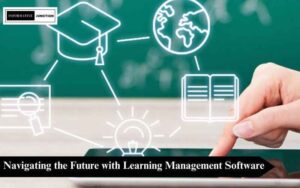In today’s digital era, education has transcended conventional classrooms. The emergence of online learning platforms has fundamentally changed how we gain expertise and abilities. This piece explores the revolutionary influence of online learning platforms, examining their significance, advantages, and influence on contemporary education.
The Significance of E-Learning in Modern Education
In the realm of contemporary education, electronic learning (e-learning) has emerged as a fundamental pillar. It provides adaptability, ease of access, and tailor-made learning encounters that address a wide array of requirements and learning preferences. The infusion of technology into education widens avenues for individuals of various age groups to interact with educational materials on their individual conditions.
The Vital Role of Online Platforms for Students
Online platforms have become indispensable tools for students. They provide a virtual gateway to a vast array of resources, ranging from video lectures and interactive quizzes to discussion forums and eBooks. These platforms enable students to access educational content anytime, anywhere, fostering a culture of continuous learning.
Benefits of E-Learning and Online Learning
The benefits of e-learning and online learning are multifaceted. They include:
- Flexibility: Learners can tailor their study schedules to accommodate work, family, and other commitments.
- Access to Quality Content: Online platforms offer access to up-to-date and relevant educational materials.
- Global Reach: Learners can access courses and expertise from around the world without geographical constraints.
- Personalization: Online platforms often use data-driven insights to provide personalized learning experiences.
- Engaging Learning Experience: Multimedia elements and interactive tools enhance engagement and understanding.
Defining Modern E-Learning
Modern e-learning transcends traditional learning methods. It encompasses a dynamic blend of multimedia content, interactive exercises, and collaborative learning opportunities. This approach leverages technology to create immersive and effective learning experiences that cater to diverse learning preferences.
The Relevance of E-Learning for 21st-Century Learners
E-learning aligns seamlessly with the needs of 21st-century learners. It equips them with digital literacy skills, adaptability, and the ability to navigate a rapidly changing landscape. E-learning fosters independent learning and self-motivation, traits crucial for success in a knowledge-driven society.
The Power of Online Platforms
Online platforms offer a plethora of benefits for learners. They facilitate:
- Access to Learning Materials: Students can access lectures, reading materials, and resources at their convenience.
- Interaction and Collaboration: Online forums and discussion boards enable learners to engage in meaningful conversations.
- Assessment and Progress Tracking: Online platforms often include assessment tools that track learners’ progress.
Addressing the Effectiveness of Online Education
Online education’s effectiveness is a topic of debate. It depends on various factors, including the quality of content, the learner’s motivation, and the level of engagement. However, studies have shown that well-designed online courses can be as effective as traditional face-to-face instruction, particularly when utilizing interactive and multimedia elements.
Nature and Purpose of Online Platforms
Online platforms serve as digital learning environments. They bring together educators, students, and resources, fostering a collaborative space for learning, sharing, and growth. The purpose is to create an accessible and engaging learning ecosystem that empowers learners to achieve their educational goals.
The Popularity of E-Learning in Today’s Context
E-learning’s popularity is rooted in its adaptability. It caters to various learning preferences, providing options for self-paced or instructor-led learning. Additionally, the widespread use of technology in daily life has seamlessly integrated online learning into people’s routines, making education more accessible.
The Essence of Electronic Learning
Electronic learning serves multifaceted purposes. It enables:
- Continuous Learning: E-learning supports lifelong learning by providing resources beyond traditional classroom settings.
- Skill Enhancement: Learners can acquire new skills and competencies relevant to their careers or personal interests.
The Importance of Learning for Students
Learning is an integral aspect of personal and professional growth. It equips students with knowledge, skills, and critical thinking abilities that contribute to their success and overall well-being. A commitment to learning is a foundation for achieving one’s goals and aspirations.
Unveiling the Benefits of E-Learning
The benefits of e-learning are extensive. They encompass:
- Accessibility: Learners can access content from anywhere with an internet connection.
- Convenience: E-learning accommodates diverse schedules and learning preferences.
- Cost-Effectiveness: Online courses often eliminate the need for travel and physical materials.
- Interactivity: Multimedia elements and interactive exercises enhance engagement and understanding.
- Flexibility: Learners can progress at their own pace, catering to individual needs.
- Diverse Learning Styles: E-learning caters to visual, auditory, and kinesthetic learners.
- Global Learning: Learners can engage with instructors and peers from around the world.
- Up-to-Date Content: Online courses can be easily updated to reflect current information.
- Instant Feedback: Assessments often provide immediate feedback for learning improvement.
- Inclusivity: E-learning accommodates individuals with varying abilities and needs.
Defining Online Learning in the 21st Century
Online learning in the 21st century is characterized by technology integration. It involves using digital tools, platforms, and resources to facilitate learning experiences that transcend traditional classroom boundaries.
Unveiling the Impact of New Literacies on Education
New literacies encompass digital skills and competencies. They impact the teaching-learning process by enabling educators and learners to navigate, evaluate, and create content in the digital realm. These literacies emphasize critical thinking, information evaluation, and responsible digital citizenship.
The Role of Multimedia in E-Learning
Multimedia enriches the e-learning experience. It engages multiple senses, facilitating deeper understanding and retention. Visuals, videos, infographics, and interactive elements enhance engagement and cater to diverse learning styles.
Exploring the Types of Online Learning
Online learning comes in various forms. These types include:
- Synchronous Learning: Real-time interaction and instruction with instructors and peers.
- Asynchronous Learning: Self-paced learning with access to pre-recorded content and resources.
- Blended Learning: A mix of online and face-to-face instruction for a holistic learning experience.
Decoding Online Learning Platforms
Online learning platforms are virtual environments for education. They serve as repositories of content, interactive tools, assessments, and communication channels. These platforms empower learners to take control of their learning journey.
Analyzing Advantages and Disadvantages of Online Learning
Online learning has its advantages and challenges. Advantages include flexibility, accessibility, and diverse learning experiences. Disadvantages may involve issues with self-discipline, technical difficulties, and lack of face-to-face interaction.
Summing Up the E-Learning Journey
In conclusion, e-learning has reshaped education. It embraces technological advancements, catering to modern learners’ needs for flexibility, access, and engagement. Online learning platforms serve as the conduits for this transformation, enabling students to learn, collaborate, and succeed in the digital age. As technology continues to evolve, the realm of e-learning is poised to provide even more innovative and impactful educational experiences.
Connect with Informative Junction
Click Here if you want to read more Interesting Blogs.




